
3 steps how to make data work for you in civil engineering
Whether it is terrain surveying, taking geospatial measurements or other project specific metrics, over time civil engineering businesses collect a lot of data during projects. If you take a look at projects you have been doing lately, you will find that your company collected a lot of data for each of these assignments. Few businesses, though, make smart use of this data, which is a big loss of intelligence!
Knowledge is power and by analysing your data, you draw conclusions that can bring added value to your next project allowing you to anticipate events and provide a better service. Data is valuable information only if it leads to a specific person at the right time, and is communicated in the appropriate form. Then it becomes an insight and important element of the decision making process.
In this blog, we go through the three simple steps of how you can convert data into insightful information.
1. Collect your data in a structured way
Before you can do anything with data, it is important that you collect it in a structured way. Choose an integrated software solution where you collect all your information about a project in one place. This is especially useful if you can logically organise all data i.e. from the arrival of a new order to the sending of the invoice, all in one system. It means that you only have to enter all information once which prevents errors and saves a lot of time.
2. Introducing smart sensors to your plant and equipment
Internet of Things is a good example of clever utilisation of data. IoT (the Internet of Things) refers to machines and devices that communicate with each other via networks. Consider, for example, a sensor that you place in a measuring rod that can check the underground infrastructure or a drone that maps a large terrain in a fraction of the time a field worker would do. Data collected by these sensors populates your ERP system via the network to which both your ERP and sensors are connected. Not only does IoT create time-saving and lifts the admin burden off your business, but it also creates a large pool of data that you can use to draw conclusions and make forecasts for future projects. If your civils business offers service and maintenance, IoT sensors can be particularly useful in determining planned or preventative maintenance and improving customer relations.
3. Choose a future-proof software partner
Choosing which digital partner to go for is a big decision. Think about what suits your needs best not just now but at least in the next few years. It is often recommended to pick a partner who knows your industry, can offer solutions to your challenges and has a clear vision for the future. This partner can provide input on which data is relevant to you and what insights you should aim to gain from it. Make sure you contact with your software partner early in the process to allow time to investigate how simple or complex it is to create any necessary IoT links.
Would you like to know more about digital solutions for business processes in civil engineering? In the whitepaper ‘5 most common challenges in civil engineering projects and how to overcome them through technology’ we describe five digital solutions that can make your business processes more efficient.
-
Share:

About the author
Paul Broderick | Paul has developed a keen eye for seeing specific customer requirements and recommending solutions to deliver business benefits and returns-on-investment. In the last three years Paul has focused this experience and knowledge specifically on the Construction industry, where digitisation is now the hot topic in IT, which has evolved and matured to become most relevant in today’s construction industry.

